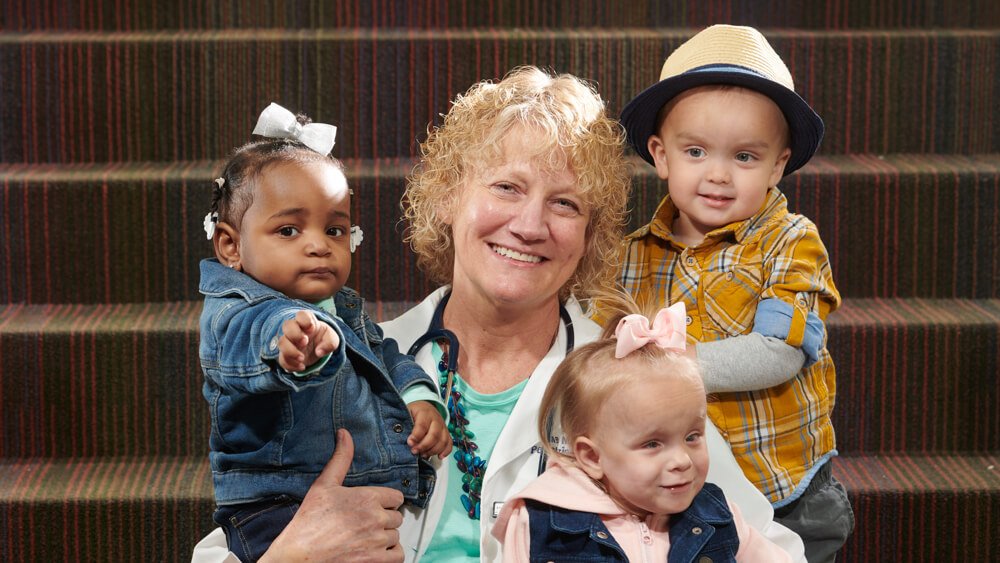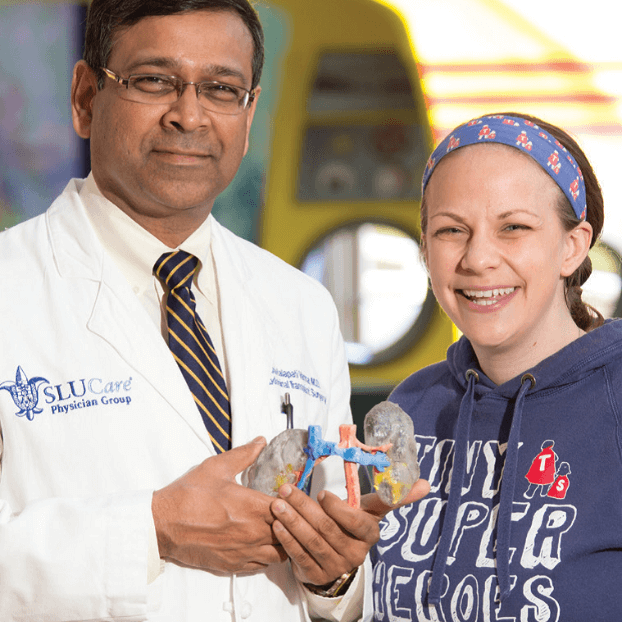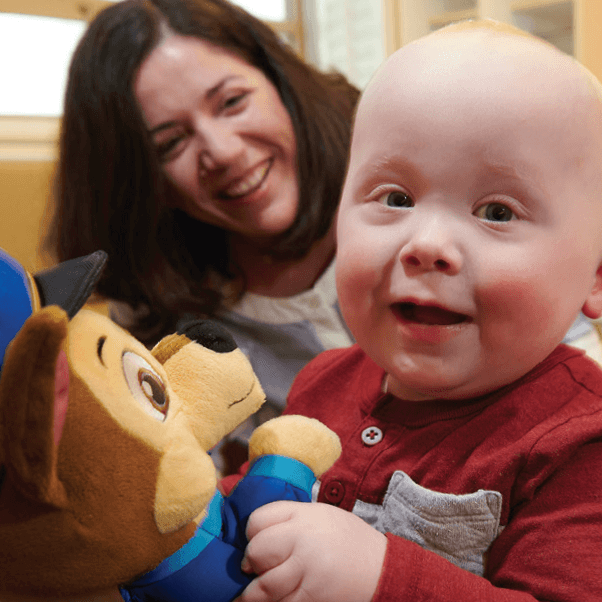Nephrology
The Division of Nephrology at SSM Health Cardinal Glennon Children’s Hospital offers expert diagnosis and treatment for infants, children and teens with kidney disorders. We provide comprehensive and multidisciplinary inpatient and outpatient services through a team of physicians, nurses, psychologists, dieticians, child life therapists, a social worker and a school teacher.
Our program is the most comprehensive of its kind in the region and includes hemodialysis, peritoneal dialysis, home blood pressure monitoring and transplants. In addition, our team provides respite activities for long-term patients, including a week-long summer camp experience.

Dialysis
Children with severe kidney disease or who are awaiting a kidney transplant require several dialysis treatments each week. Some children are able to receive home dialysis, but many of our patients must come to the hospital three to four times a week for their treatments. Dialysis treatments essentially do the kidneys’ work for them, removing waste products from the body and helping to control blood pressure.
Some children only need dialysis for a short time, but many children who receive dialysis do so for many months, or even years, while they await a new kidney.
Transplants
Our kidney transplant program has excellent survival rates and is certified by the Centers for Medicare and Medicaid Services. We are one of 16 programs nationwide participating in the Improving Renal Outcomes Collaborative and one of 30 centers participating in an effort to reduce infections in dialysis patients.
Many of our patients awaiting a transplant are medically complex. These children require more specialized attention, as there are multiple medical teams involved in their care, and seemingly unrelated medical issues can affect the “technical” aspects of receiving a new kidney.
Social Determinants of Health
As one of only two providers of pediatric dialysis in the St. Louis metro area, SSM Health Cardinal Glennon cares for a large percentage of families who experience significant barriers to accessing care. While it is well established that families who are socioeconomically challenged experience health disparities, even families with private insurance experience distress when providing full-time care for a sick child. Further, some families travel to SSM Health Cardinal Glennon from a great distance, placing an even greater burden on them.
If these needs are not addressed, a child’s eligibility for a transplant is adversely affected. In order to be eligible, a patient must have a documented six-month period of strong compliance with medications, regular dialysis treatments and a healthy diet. Accordingly, our staff devotes extra time with families to prepare eligible children for transplant. Our dedicated social worker assists families to address any needs they may have, from housing instability (falling behind on rent or utilities), expensive medications or home monitoring equipment not covered by insurance or Medicaid, transportation barriers and more.
How Your Support Will Help
By supporting the Nephrology division, you are helping us make a difference in the lives of children in the following ways:
Technology Upgrades. New models of various devices become available each year and must be replaced in order for us to provide the safest, most effective care for our patients. Your support enables us to stay at the forefront of this field.
Kidney Camp. Every June, a group of patients and staff travel to Camp Okawehna in Tennessee for a week-long camp specifically for children with kidney disease. The children who attend enjoy a true camp experience with other kids just like them. Donor support allows us to fully cover the cost of camp, so that any child who wishes to attend can do so without regard to family finances.
Family Assistance Program. Donor support allows us to help families who are facing eviction from housing, utility terminations, extraordinary expenses for transportation, home blood pressure monitoring equipment, medications and more.

